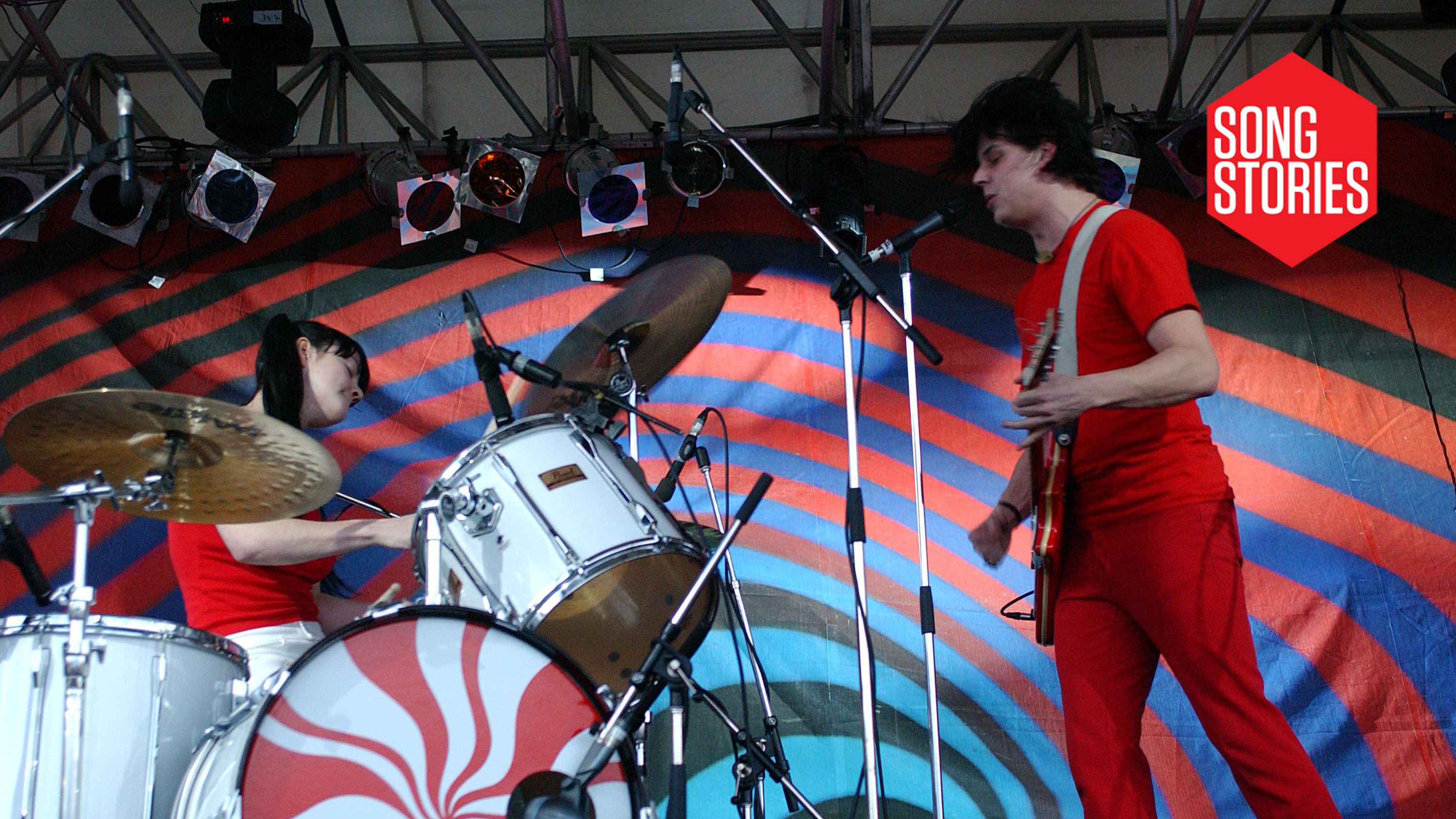“Sometimes there’s songs that get put aside until it feels right” – the story of The White Stripes' Dead Leaves On The Dirty Ground
“Dead Leaves And The Dirty Ground was written before we did our first album”

"I get so bored, and so depressed, with the weak, feeble sound that most guitar players are creating at the moment,” Jack White told Total Guitar magazine in one early interview. “I think there should be a change in attitude to stop people approaching it in such a wimp-like way.”
This was more than just fighting talk. A few months earlier, The White Stripes had released Dead Leaves And The Dirty Ground, a primal, scabrous, feedback-soaked wrecking-ball of a hit single that had dragged rock ’n’ roll away from the nu-metal hordes and back into the primordial soup by the hair.
As it kicked off their breakthrough third album, 2001’s White Blood Cells, and was deemed ‘the sound of now’ by the hipster music press, it’s interesting to note that White had written this song some years earlier, complete with lyrics widely interpreted as a nod to his relationship with drummer Meg White.
When the Stripes ditched the cover versions, pure blues, slide guitar and solos of their first two albums for a more garage-rocking direction, this song naturally came out of the vault. “Dead Leaves And The Dirty Ground was written before we did our first album,” he told one interviewer. “Sometimes there’s songs that get put aside until it feels right.”
He told me more than once not to make it sound too good
That time came in February 2001, when The Whites Stripes hit Easley-McCain Recording in Memphis, Tennessee, for a breakneck session of all-analogue spit and polish that flew in face of the Pro Tooled-up industry.
White once told TG that “I hate excess in production, recording on 300 tracks and all that”, and Dead Leaves exemplifies that minimalist attitude (unlike previous records, it doesn’t even have a bass track).
“There were probably only three real days of recording,” he told Metro Times. “We really rushed the whole album, to get that feel to it, a real tense thing coming out of it.”
Want all the hottest music and gear news, reviews, deals, features and more, direct to your inbox? Sign up here.
“We just set up and they started going,” confirms recording engineer Stuart Sikes in the Detroit Free Press. “Jack knew what he wanted. He told me more than once not to make it sound too good. Basically, he wanted it as raw as possible, but better than if it was recorded in somebody’s living room. He steered me that way and I ran with it.”
White got his wish: the production values are only marginally better than a four-track bedsit recording, but that’s what makes Dead Leaves And The Dirty Ground so dirty and illicit.
He reportedly played his cherished ’64 JB Hutto Montgomery Airline guitar – with a hollow fibreglass body for that midrange ‘thunk’ – alongside his favoured amp cocktail of 100-watt 2x12 Sears Silvertone and Fender Twin Reverb, and above all, an Electro-Harmonix Big Muff.
Just as important to the vibe is that he scythes through the main riff, then backs his howled vocal with a clean arpeggiated thumb-and-fingers sequence that isn’t exactly neat-and-tidy. “My technique is really more an attack on the guitar,” he told TG. “I don’t want to be reverential to the instrument at all.”
Hotel Yorba might have been the festival singalong and Seven Nation Army the guitar shop standard, but when The White Stripes folded in 2011, it was Dead Leaves And The Dirty Ground that stood as the best legacy of their original mission statement: dirty, dangerous, rough ’n’ ready rock with the frayed edges left on.
Don’t take our word for it, though. There’s a pivotal moment in the 2009 documentary It Might Get Loud. With the ice broken and foreplay over, the three pan-generational giants of rock guitar huddle in a circle as each chooses a classic riff to teach the others. Jimmy Page pulls out Whole Lotta Love. The Edge goes for I Will Follow. You’d expect White to settle for the better known Seven Nation Army, so it speaks volumes that he tears into Dead Leaves And The Dirty Ground.
And if it’s good enough for Lord Page to learn, it surely deserves a place in your riff vocabulary.